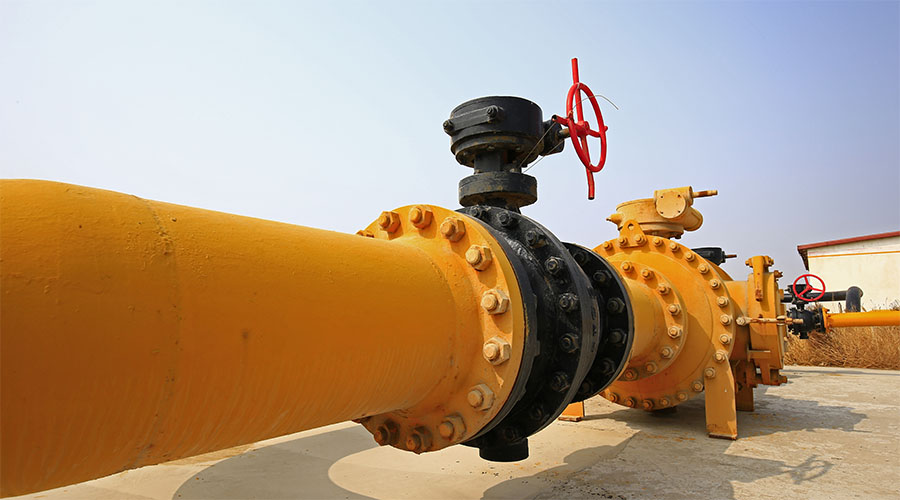The study also notes that developing natural gas from shale is "essential to the energy security of the US and the world," echoing the findings of a Baker Institute study from last year.
Interestingly, the UT study looked at media coverage of hydraulic fracturing and shale development, and let's just say that America's journalists have their work cut out for them. "For the nation as a whole," the authors write, "the attitudes were found to be uniformly about two-thirds negative." Here's the accompanying chart:

Yikes. Such one-sided coverage is likely due to a failure to report what scientists and regulators have actually said about the process. The study further notes: "With respect to reference to scientific research, the search found that few articles referenced research on the topic of hydraulic fracturing." Indeed, according to the authors only 18 percent of newspaper articles actually referenced scientific research in their pieces about hydraulic fracturing. Television scored a little higher, with 25 percent citing available research. The highest rated media source in terms of covering what the science says was online, which still only came in at 33 percent.
On the issue of media coverage and the public's knowledge of hydraulic fracturing, the study concludes:
"The evidence that media coverage on hydraulic fracturing does influence knowledge acquisition should allow policy makers to better understand how to reach relevant publics on such a complicated topic. It also should alert policy makers to the fact that much of the information being reported is not based on, or at least referencing, scientific research and in many cases reports on the negative consequences associated with hydraulic fracturing. If the public is going to be able to accurately understand the impact, positive and negative, that fracturing has on society, it is imperative that media coverage represents the breadth of issues associated." (p. 36, full report [PDF], emphasis added)
Proving UT's findings instantaneously, here's how two major news outlets chose to report on the study's release:
EcoCentric (Time Magazine): "Shale Gas: It's Not the Fracking That Might Be the Problem. It's Everything Else"
AFP: "Surface woes blamed for fracking flaws: study"
(To be fair, many more news outlets, including the AP, characterized the report as confirming there is no water contamination from hydraulic fracturing.)
Here are some other key findings in the study, according to the Energy Institute's overview of findings:
- Researchers found no evidence of aquifer contamination from hydraulic fracturing chemicals in the subsurface by fracturing operations, and observed no leakage from hydraulic fracturing at depth.
- Many reports of groundwater contamination occur in conventional oil and gas operations (e.g., failure of well-bore casing and cementing) and are not unique to hydraulic fracturing.
- Methane found in water wells within some shale gas areas (e.g., Marcellus) can most likely be traced to natural sources, and likely was present before the onset of shale gas operations.
- Surface spills of fracturing fluids appear to pose greater risks to groundwater sources than from hydraulic fracturing itself.
- Blowouts — uncontrolled fluid releases during construction or operation — are a rare occurrence, but subsurface blowouts appear to be under-reported.
Digging a little deeper, the study notes that emissions from shale gas development are "significantly less than the contributions from other sources" in urban drilling environments, and that linkages between fracturing additives and health problems "have not been scientifically established". And with respect to safety and regulations, the authors note that, in many cases, "companies are implementing practices that exceed regulatory requirements".
Finally, the study looked at violations that have occurred and came to an interesting conclusion: By an overwhelming margin, most violations are procedural or minor without any environmental impacts, a far cry from the doomsday headlines that opponents conjure up. According to the study:
"Generally, this information suggests that many of the violations are procedural and represent no environmental effects; are minor with no effect – meaning that an inspector noted a flaw in a pit or casing job, for example, but did not note any release of contaminant to the environment as a result of that flaw; or represent minor effects, such as small releases."
In a release, Brad Gill, executive director of the Independent Oil and Gas Association of New York (IOGA of NY), said the report validates what regulators and other scientists have long maintained: that hydraulic fracturing "is a proven and safe method for extracting natural gas and oil."
And if you're looking for others who have written about the study, be sure to check out this post from John Hanger, the former Secretary of Pennsylvania's Department of Environmental Protection, who says that although the study is limited, it is nonetheless "objective" and "useful." Be sure to also check out this post from Scott Anderson, senior policy advisor at Environmental Defense Fund, who writes: "As has been the case in other inquiries, the University of Texas study did not find any confirmed cases of drinking water contamination due to pathways created by hydraulic fracturing."
Shannon Brushe, Energy InDepth


























































